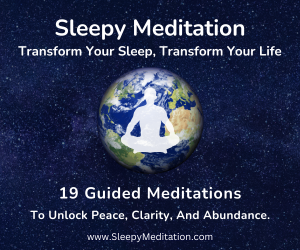Unlocking Inner Peace: Strategies for Improving Mental Health
In today’s fast-paced world, it’s easy to feel overwhelmed and stressed. We are constantly bombarded with information, expectations, and responsibilities that can take a toll on our mental health. Finding inner peace is essential for maintaining overall well-being and improving mental health. In this article, we will explore strategies for unlocking inner peace and achieving a sense of calm and balance in our lives.
The Importance of Inner Peace
Inner peace is a state of mind where you feel calm, centered, and at peace with yourself and the world around you. It is essential for maintaining mental health and overall well-being. When you are at peace with yourself, you are better able to handle stress, anxiety, and negative emotions. Inner peace allows you to focus on the present moment, cultivate positive relationships, and live a more fulfilling life.
Strategies for Unlocking Inner Peace
There are many strategies you can use to unlock inner peace and improve your mental health. Here are some effective techniques:
Mindfulness Meditation
Mindfulness meditation is a powerful practice that can help you cultivate inner peace and reduce stress. By focusing on the present moment and observing your thoughts and emotions without judgment, you can develop a greater sense of self-awareness and inner calm. Regular meditation practice can help you stay grounded and centered, even in the midst of chaos.
Deep Breathing Exercises
Deep breathing exercises are a simple yet effective way to calm your mind and body. By taking slow, deep breaths and focusing on your breath, you can activate the body’s relaxation response and reduce stress and anxiety. Practice deep breathing exercises whenever you feel overwhelmed or anxious to bring yourself back to a state of peace and relaxation.
Yoga
Yoga is a holistic practice that combines physical postures, breathwork, and meditation to promote physical and mental well-being. By practicing yoga regularly, you can improve flexibility, strength, and balance while also reducing stress and promoting relaxation. Yoga can help you connect with your body and mind, leading to a greater sense of inner peace and harmony.
Journaling
Journaling is a powerful tool for self-reflection and self-expression. By writing down your thoughts, feelings, and experiences, you can gain insight into your inner world and process your emotions in a healthy way. Journaling can help you release pent-up emotions, clarify your thoughts, and find inner peace through self-awareness and self-acceptance.
Gratitude Practice
Practicing gratitude is a simple yet powerful way to cultivate inner peace and happiness. By focusing on the positive aspects of your life and expressing gratitude for the things you have, you can shift your perspective from lack to abundance. Gratitude can help you appreciate the present moment, foster positive emotions, and increase your overall sense of well-being.
Common Questions About Inner Peace
What are the benefits of inner peace?
Inner peace has many benefits for mental health and overall well-being. It can help reduce stress, anxiety, and negative emotions, improve self-awareness and self-acceptance, enhance relationships and communication, and promote a sense of calm and balance in your life.
How can I achieve inner peace?
Achieving inner peace requires practice and dedication. You can cultivate inner peace by incorporating mindfulness meditation, deep breathing exercises, yoga, journaling, and gratitude practice into your daily routine. It’s important to prioritize self-care, set boundaries, and practice self-compassion to nurture your inner peace.
What are some signs that I need to work on my inner peace?
If you are feeling overwhelmed, stressed, anxious, or disconnected from yourself and others, it may be a sign that you need to work on your inner peace. Pay attention to your thoughts, emotions, and physical sensations to identify areas where you may be struggling and in need of self-care and support.
Conclusion
Unlocking inner peace is essential for improving mental health and overall well-being. By incorporating mindfulness meditation, deep breathing exercises, yoga, journaling, and gratitude practice into your daily routine, you can cultivate a greater sense of calm, balance, and self-awareness. Prioritize self-care, set boundaries, and practice self-compassion to nurture your inner peace and live a more fulfilling life. Remember that inner peace is a journey, not a destination, and it requires practice and dedication to maintain. Start small and gradually incorporate these strategies into your daily life to unlock inner peace and improve your mental health.




































































